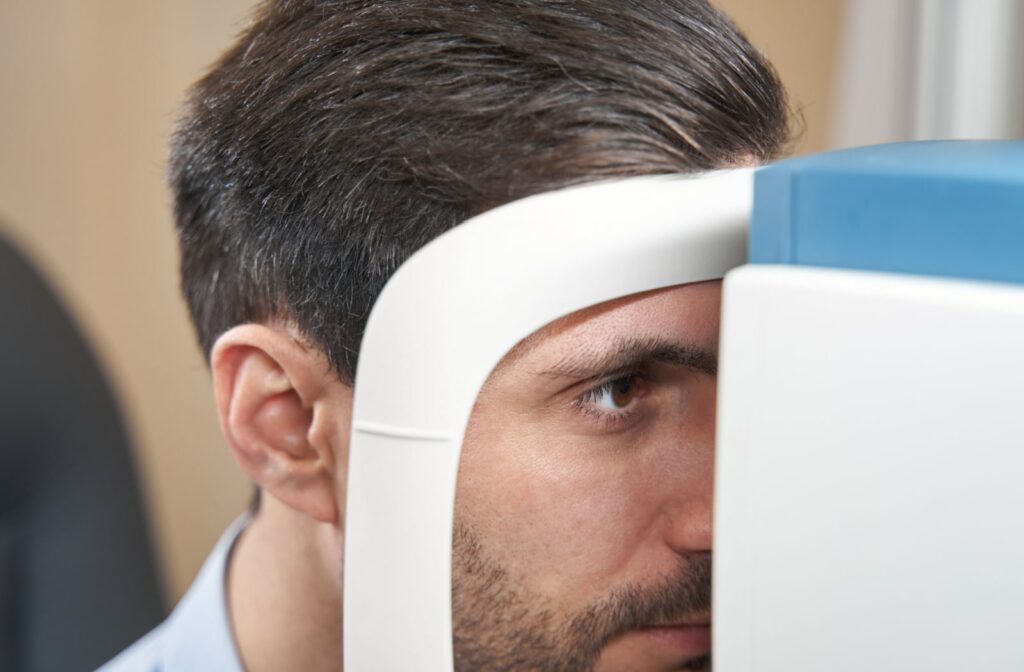Featured
Table of Contents

Routine eye examinations are essential for maintaining good vision and discovering prospective eye wellness concerns early. The regularity of these tests can differ considerably based on an individual's age, way of life, and general health. Recognizing the advised routine for eye examinations can assist make sure that people of every ages obtain appropriate care and monitoring for their eye health.
Newborns and Toddlers (0-2 Years)
For babies and young children, eye exams are important for finding any kind of possible vision problems early. The American Academy of Ophthalmology advises that a child's very first eye test need to take place at around 6 months of age. During this first visit, the eye care specialist will certainly examine the youngster's visual advancement and check for any type of noticeable eye issues.Following this initial examination, it is advised that youngsters have one more eye exam at age 3. This see will certainly concentrate on evaluating the child's overall aesthetic feature, consisting of eye alignment and the ability to track items. If no problems are spotted, the following test ought to be set up before the child starts college, generally around age 5 or 6.
School-Aged Kids (6-18 Years)
When youngsters get to college age, regular eye exams need to be arranged each to 2 years. Vision is crucial for discovering and development, and numerous schools carry out vision screenings. These testings do not change a comprehensive eye exam by an eye care professional.For children involved in sporting activities or tasks needing significant visual focus, yearly eye examinations may be recommended. Furthermore, if a child shows indicators of vision problems-- such as difficulty reviewing, squinting, or regular frustrations-- a browse through to the eye doctor need to be arranged immediately.
Youthful Grownups (19-39 Years)
Youthful grownups usually have fewer vision changes than older age, but normal eye examinations remain essential. The general referral is to set up an eye exam every 2 years during this period. People with specific threat elements-- such as a family history of eye disease, diabetes mellitus, or those that wear get in touch with lenses-- must consider yearly eye examinations.Furthermore, those that invest considerable time on electronic gadgets might experience digital eye strain. If signs and symptoms such as dryness, fatigue, or obscured vision happen, it might be sensible to see an eye care professional earlier.
Adults (40-64 Years)
Adults aged 40 to 64 need to schedule eye tests every one to 2 years. Eye exams can additionally aid spot other usual age-related conditions such as glaucoma, cataracts, and macular degeneration.If people in this age group have danger variables like high blood stress or diabetes mellitus, they may call for more frequent evaluations to check their eye health and wellness closely.
Senior Citizens (65 Years and Older)
For elders, normal eye exams come to be also much more crucial. The American Optometric Association recommends that people matured 65 and older have an eye test at least as soon as a year.Verdict.
Recognizing the appropriate schedule for eye examinations based on age is crucial for maintaining optimum eye health throughout life. From babies to senior citizens, regular eye exams play an important role in detecting issues early and making sure that vision remains sharp. By sticking to these standards and speaking with an eye care specialist, people can take positive steps toward preserving their vision and general health and wellness. Whether it's a kid's very first check out or an elderly's yearly check-up, prioritizing eye treatment is an investment in long-lasting health.Table of Contents
Latest Posts
Discovering the Newest Safety Features in Ford's Latest Models
Published Nov 23, 24
3 min read
Essential Signs Your Vehicle Demands Immediate Repair or Maintenance
Published Nov 23, 24
0 min read
Trusted Tinley Park Roofing Contractors – Top-Notch Roofing Services by Aabel Roofing
Published Nov 23, 24
3 min read
More
Latest Posts
Discovering the Newest Safety Features in Ford's Latest Models
Published Nov 23, 24
3 min read
Essential Signs Your Vehicle Demands Immediate Repair or Maintenance
Published Nov 23, 24
0 min read
Trusted Tinley Park Roofing Contractors – Top-Notch Roofing Services by Aabel Roofing
Published Nov 23, 24
3 min read